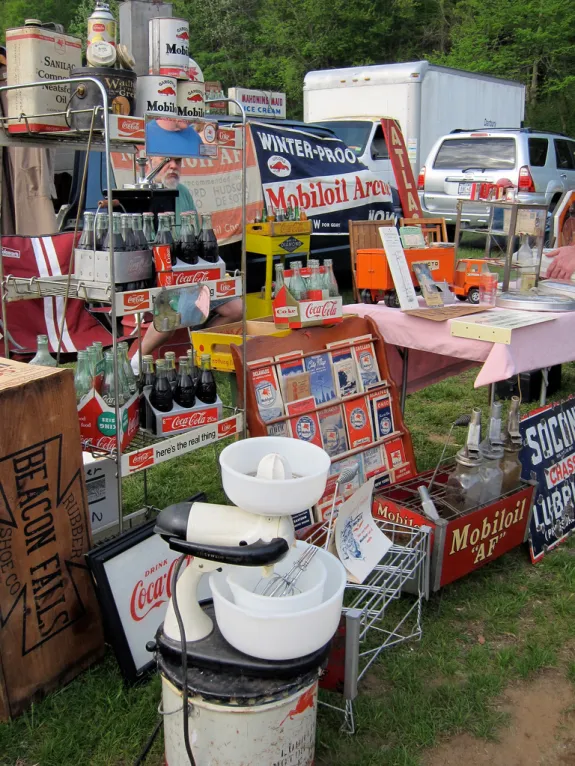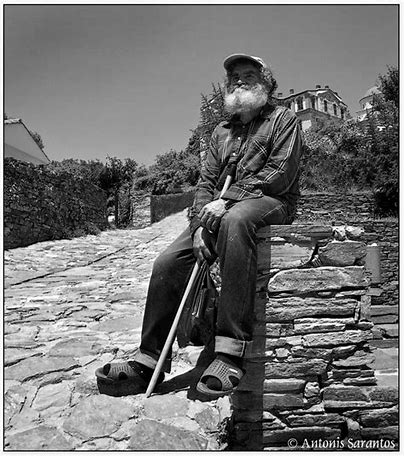
I was dreaming of bees; thousands upon thousands of bees—buzzing, swarming, droning—descending from the sky like an angry summer’s storm. I wasn’t afraid, merely curious as to why they had all banded together to drop like a blanket upon my house. As the buzzing, swarming droning horde fell through the open skylight, I felt a hand gently pulling on my sleeve.
I opened my eyes and saw a peacock feather cutting a wide arc in the air. Once released of the feather’s hypnotic affect, I followed the long solitary plume to its source, a round green cloth hat banded with a brilliant green ribbon.
“Oh, excuse me,” a voice beneath the hat said as she lifted the cuff of my pajama sleeve. “I only wanted to see the price. They said to check the sleeve for a price.”
“Price?” I repeated groggily. “What do you mean—price?” A moment later, the bees were gone and I was awake to a limited understanding of where I was. “What are you doing?” I asked with growing surprise. I was now sitting up in bed, pulling back on my arm.
My interrupter was a kindly looking woman in her early or middle fifties, the kind you find manning the pie booth at the church bazaar. Her grip, however, was of iron, and it would not relent.
“What are you doing?” I asked again, pulling even harder now. “Let go!” I insisted, “and get out of my bedroom!”
Without a word, she released my sleeve. Her face turned reproachful as she leaned away from me.
“It’s not right to leave things unmarked,” she tutored with repressed righteousness. Turning her head, she relaxed her features into an accountant’s fixed stare.
“I’ll give you $25.”
“For my pajamas?” I asked.
“For the bed,” she answered.
“Who’s selling the bed?” I inquired, looking towards the door through which I could now hear voices approaching. Perhaps the voices of her keepers, I imagined.
“$30 and you deliver!”
“Deliver what?” I asked, trying to sound vaguely interested. I was biding for time, of course; the voices still traveling steadily in our direction. “Are we still talking about the bed?” I asked. “Or are we back to the pajamas?”
Just then I saw my bedroom doorknob turning.
“Your friends, I believe,” I said. Friends? Keepers? What was the difference?
“You’re right,” she answered with a forceful shake of her head. “Quick, give me a price on the bed!”
“Muriel?” called the first of the three women to enter my bedroom. Then, as if to answer her own question, she added: “New discoveries—good? Everything downstairs seems so tacky.”
“Tacky?” one of her companions questioned, breathing the word out with a mixture of incredulity and laughter. “The nerve of the prices. $15 for a broken blender. $10 for a chipped porcelain gravy boat
“Porcelain?” the third woman joined in, “I’d say ceramics of the poorest kind. Night school arts and crafts…”
Just then, three other strangers walked into the room. A woman wearing a khaki pith helmet was carrying the lamp from my den under her arm.
“Can you tell me what is happening here?” I asked Muriel. “Why are you here in my room—and these others?”
“Yard Sale,” she answered, looking at me as if I were trying to put something over on her.
“Yard sale?” I cried, disbelieving. “In my house? Without me knowing about it…Hey!” I shouted at the boy who had picked up my wife’s framed photo of her two best friends from college. “What are you doing? Put that down?”
“Isn’t it for sale?” he asked innocently.
I started to answer “No,” when a little voice reminded me how I felt about that picture and the two women it had kept immortalized in my bedroom for the last seven years.
“Of course it’s for sale,” I answered. I got out of bed and stepped around Muriel, who was reading the DO NOT REMOVE THIS LABEL stuck to the side of the pillow. “Excuse me,” I told her. “I just have to speak with this fellow…”
“Drawstrings?” Muriel noted with an appreciative nod, the new discovery clearly serving to heighten her interest in purchasing my pajamas.
It was then that I noticed I was standing on bare wood, and not the circular rug that was usually next to our bed.
There was no time to worry about the rug, or the other items whose disappearance I was only now discovering.
“Ten dollars for the picture,” I told the boy as I approached, pulling my pants on over my pajamas.
“Careful with those pajamas,” a voice behind me cautioned.
“Ten dollars!” the boy said, half in shock. “I’ve only got fifty cents to buy my mother a birthday present.”
“Fifty cents it is!”
“You can keep the picture,” the boy said. “I only want the frame.”
“You either take the picture or the deal’s off,” I warned him. “It’s fifty cents with the picture, or ten dollars without.”
I no sooner had the boy’s two quarters in my hand, than I rescued my hairbrush from a middle-aged man with hardly any hair on his head, then went off to find my wife, shouting “MILLICENT!”
Now I knew this was all a dream, of course. One doesn’t normally wake up to find the contents of his house up for sale without knowing about it in advance. Millicent and I might not communicate about little things, like passing on phone messages, but when it comes to big stuff like surprise yard sales, we usually confided in each other.
No, it was a dream all right. In fact, being a writer, I felt slightly embarrassed that I’d have to bring such an interesting situation to a conclusion with one of the oldest cliches in the business—the worn and threadbare hero-wakes-up-from-his-dream finale. Still, as I went from room to room shouting “MILLICENT!” without any success, I found literally dozens of strangers crawling over my possessions like ants on spilled ice cream.
Embarrassed or not, I was glad there would be a simple explanation, a simple solution. I only hoped it would come before Muriel ripped my pajamas off my back.
Of course, the whole affair seemed so real and inescapable that I couldn’t help but get angry when I saw the possessions I valued treated like second hand junk.
“Is that really necessary?” I angrily asked of a heavy-set man who was testing the strength of my father’s prized cherrywood desk by banging on it with his fists. “It’s an antique, you know.”
“For $50 it had better be,” was all the answer I was going to get from him.
Fifty dollars! Yes, this was a dream all right.
I weaved my way through the crowd, searching for any sign of my wife or the kids. The house must have had somewhere between 40 and 75 people inside, each one pushing or pulling or testing or smelling or feeling or lifting or trying on or carrying or kicking some item that I or some other member of my family once thought worthy of owning. Even to me, most of it now looked like trash.
Finally, I made my way into the kitchen, still shouting “MILLICENT!” I walked by our toaster-oven ($5, needs new plug), our kitchen table ($18, chairs incl.) and out through our rear mud room. Just before opening the screen door, I spied a sign over some of Katie and Kristin’s toys, which indicated that these items were not for sale. A moment later, I went out into the back yard carrying Katie’s Big Wheels plastic tricycle in one hand, Kristin’s paint set in the others. I sold the Big Wheels before I had a chance to set it down on the grass. The paint set I had to promote a little before I finally enticed a six year-old to take it for a dime.
The backyard was even more crowded than the inside of the house. There seemed to be hundreds of people—not one of whom seemed familiar—poking, sniffing and hefting the trash and treasures it had taken us years to accumulate. I was surprised to notice that much of it was actually junk, stuff we could easily live a good life without having it in our possession. Some of it was junk we had purchased at other yard sales. But then I came across my golf club bag, and the smile on my dream face fell to the drawstrings that were sticking up from my trousers.
I looked at the empty golf bag and the sign taped to it; 25 cents each! And I marveled at how Millicent was able to sneak inside my dream to pay me back for all those weekend mornings when I drove that bag and its former contents over the rolling hills of our local country club.
“MILLICENT!”I shouted, climbing onto our backyard picnic table ($45 w/benches).
Incredible as it seemed, neither she nor my two children nor, in fact, anyone in the world that I personally knew was at that devilish yard sale. It was just me and two hundred strangers, and I got so upset to think that I was alone in this Cecil B. DeMille epic that I again forgot it was all a dream.
“Leave that alone!” I shouted angrily at a nice enough looking fellow who just happened to be checking out my lawn mower ($20 w/gas). “It’s not for sale.”
I turned to a woman who was coming out of my house with three of my suits over her arm, and I began to growl at her.
When I felt hands start to grab hold of me, holding me back, my growling increased to a pitch that made them force me to the ground. At which point I growled even more ferociously and broke free of their grasp and stepped away from them just long enough to reach for my lucky fishing hat, which some nasty little kid had bought for thirty-five cents.
“It’s priceless!” I told him as he grabbed it back. “Give me another two bits at least.”
Angry voices began to rise up around me.
“Hey” one said.
“A price is a price,” added another.
“Who let him in?” someone else asked peevishly.
“How much for the slippers?” a woman asked. I couldn’t see her, but she sounded like Muriel.
The voices all lifted up from the bodies that surrounded me, and became a creature unto itself, a living herd of voices. A moment later, they transformed into droning voices, then droning bees; and a smile returned to my face as I realized this was still a dream and, better yet, the bees were coming back.
“It must be ending,” I told myself. “The dream must be ending. I…”
Darkness fell and it seemed to bring a limitless expanse of nothingness. I felt as if I were falling through space—perhaps through time as well, for I lost any sense of how long a fall could last. Finally, it seemed as if I had stopped falling, and there was a gentle tugging on my arm.
I opened my eyes and saw a peacock feather cutting a wide arc in the air.
“Excuse me,” a familiar voice said. “Were you able to find out the price?”




